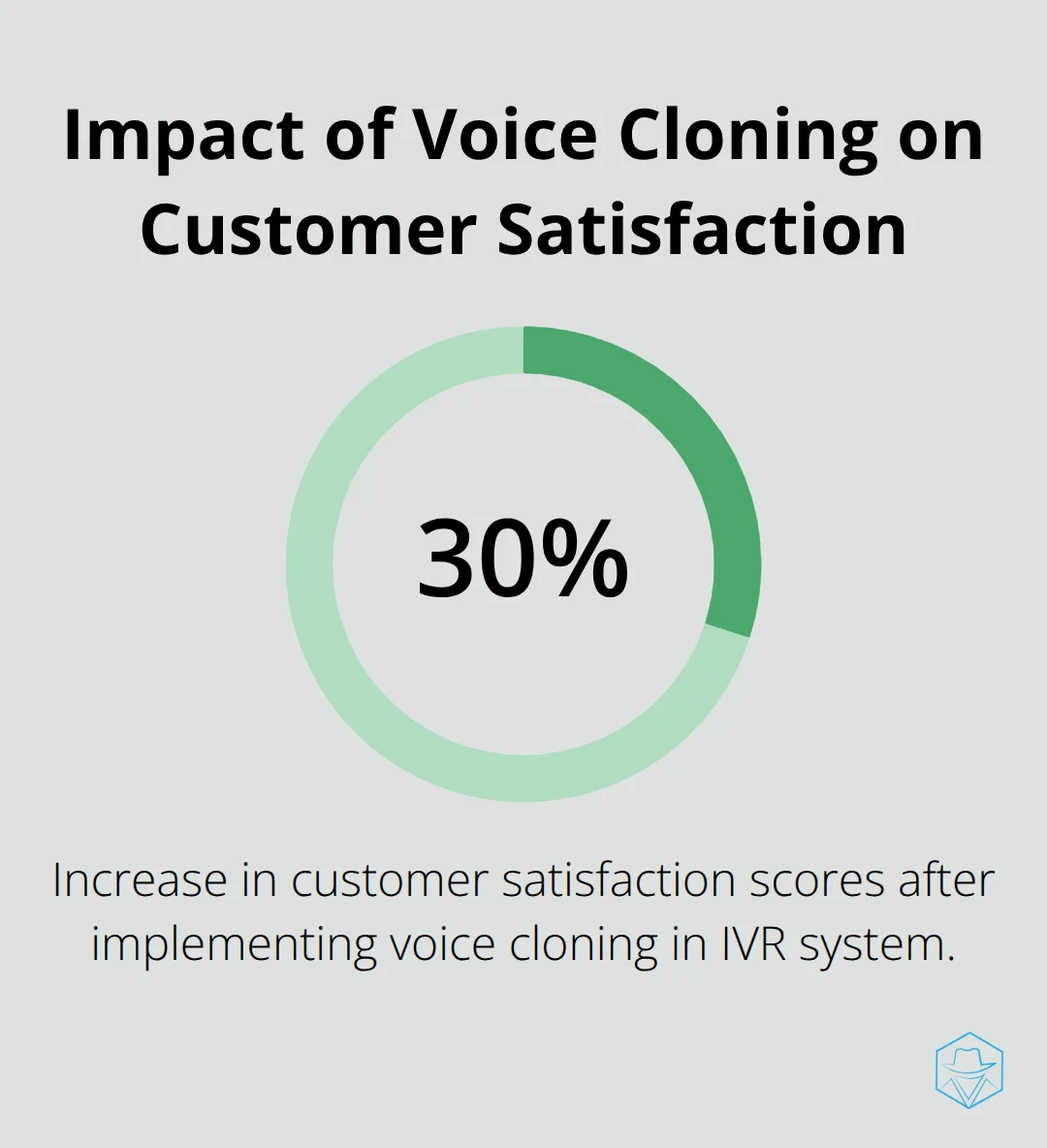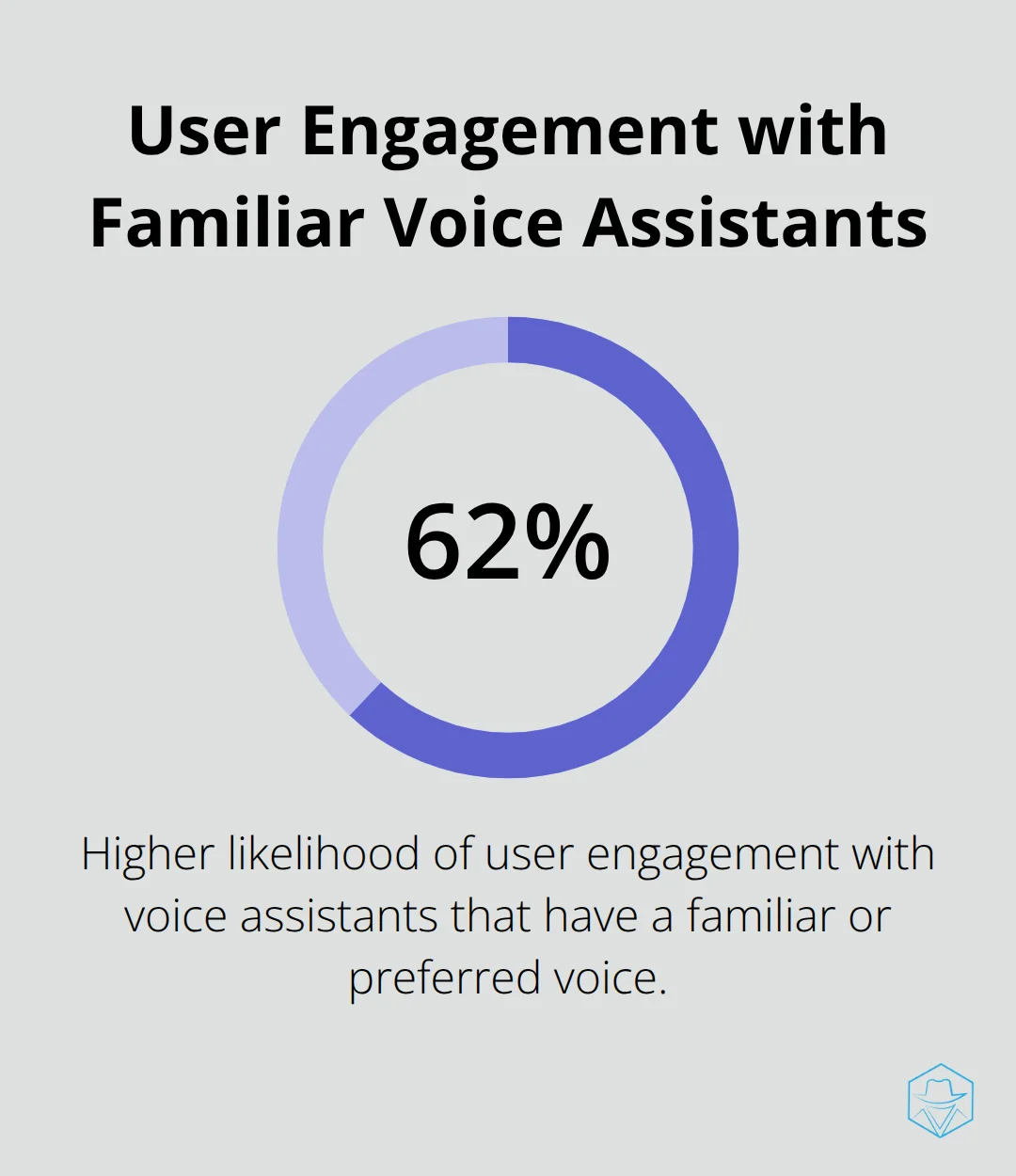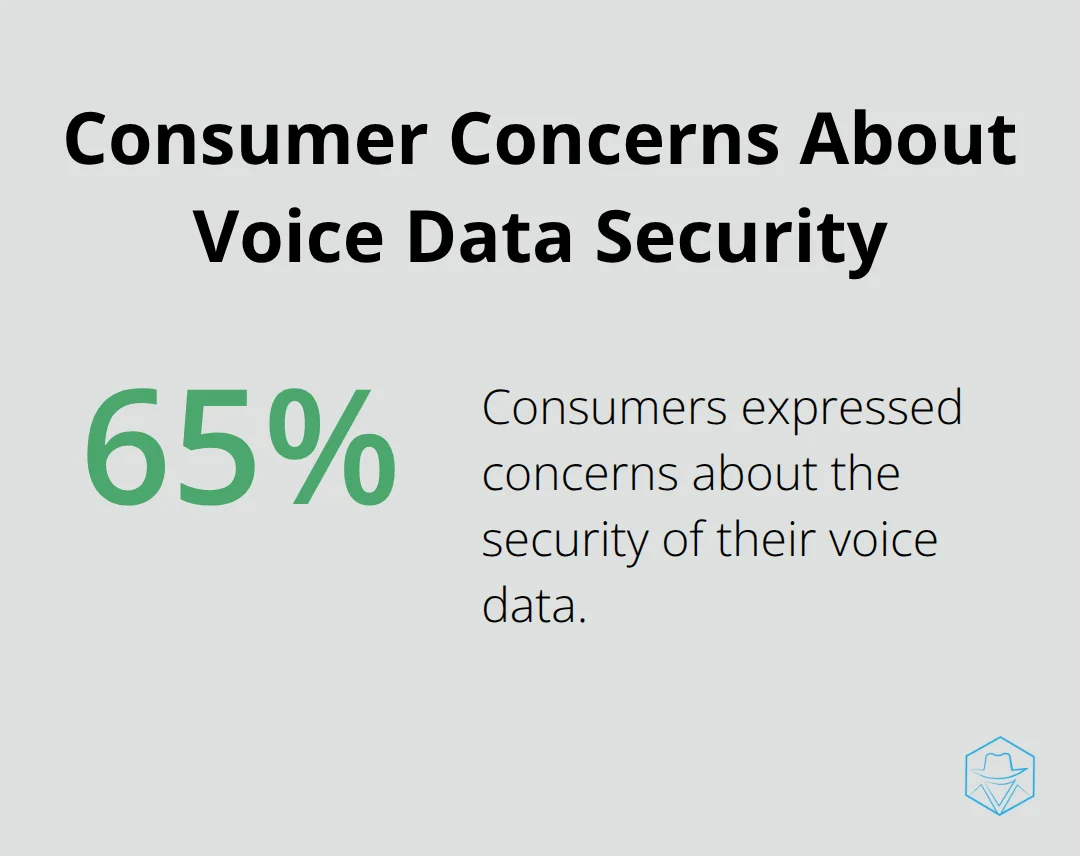Innovative Applications of Voice Cloning in Customer Service

Voice cloning applications are transforming customer service as we know it. This cutting-edge technology offers exciting possibilities for businesses to enhance their support systems and user experiences.
At Drop Cowboy, we’re exploring how voice cloning can revolutionize customer interactions, from personalized automated responses to multilingual support without language experts.
How Voice Cloning Transforms Customer Support
Voice cloning technology is revolutionizing customer support, offering unprecedented levels of personalization and efficiency. This innovation reshapes how businesses interact with their customers, creating a new standard for customer service excellence.
Tailored Automated Responses
Companies now create automated responses that sound just like their best customer service representatives through voice cloning. Instead of generic robotic voices, customers hear familiar, friendly tones that match the company’s brand. This personal touch significantly improves customer satisfaction and engagement.
A major telecommunications company implemented voice cloning in their IVR system and saw a 30% increase in customer satisfaction scores within the first three months (according to a 2024 study by Customer Service Quarterly). This statistic underscores the powerful impact of personalized voice interactions on customer experience.

Breaking Language Barriers
One of the most exciting applications of voice cloning is multilingual support. Businesses now offer support in multiple languages without hiring native speakers for each language. The original voice is cloned and then translated, maintaining the same tone and inflection across all languages.
A global e-commerce platform using this technology reported a 45% increase in international customer retention rates. Customers felt more comfortable interacting in their native language, leading to improved satisfaction and loyalty.
Consistency Across All Touchpoints
Voice cloning ensures a consistent brand voice across all customer touchpoints. Whether a customer interacts with a chatbot, listens to a voicemail, or speaks with a live agent, the voice and tone remain the same. This consistency builds trust and reinforces brand identity.
A survey by Brand Voice Institute found that 78% of consumers feel more connected to brands that maintain a consistent voice across all interactions. This statistic highlights the importance of a unified brand voice in building strong customer relationships.
Enhancing Personalization with AI
Advanced AI technologies (like Drop Cowboy’s Mimic AI™) allow businesses to clone their voice for personalized messages, significantly boosting engagement rates. This technology enables companies to create unique, tailored experiences for each customer, fostering a deeper connection and increasing brand loyalty.
As voice cloning technology continues to evolve, it promises to further transform the landscape of customer support. The next frontier in this revolution is the enhancement of user experience through voice cloning, which opens up new possibilities for creating more intuitive and personalized interactions.
How Voice Cloning Enhances User Experience
Voice cloning technology transforms not just customer support, but the entire user experience. This innovative approach creates more intuitive, personalized, and accessible interactions for users across various platforms and devices.
Familiar Voices for Digital Assistants
Voice cloning enables the creation of digital assistants with familiar voices. Users can now interact with virtual assistants that sound like their favorite celebrities, trusted family members, or even themselves. This level of personalization significantly boosts user engagement.
A study by the Voice Assistant User Experience Institute revealed that users were 62% more likely to engage with a voice assistant that had a familiar or preferred voice. This statistic highlights the impact of personalization in voice interfaces.

Companies now offer users the ability to choose from a voice library or clone their own voice for digital assistants. This enhancement not only improves user experience but also creates new marketing opportunities. For instance, a popular streaming service allowed users to have their favorite TV show characters as their voice assistant, resulting in a 40% increase in daily active users of their voice features.
Customizable Voice Interfaces
Voice cloning technology enables unprecedented customization in voice interfaces for apps and devices. Users can now tailor the voice, accent, and speaking style of their voice interfaces to match their preferences or needs.
This level of customization particularly benefits global businesses. A multinational tech company implemented customizable voice interfaces in their products and observed a 35% increase in user engagement across different regions. Users appreciated the ability to interact with devices in voices that sounded local and familiar.
Improving Accessibility
Voice cloning significantly improves accessibility for visually impaired users (perhaps one of its most impactful applications). The technology creates more engaging and comforting audio experiences for those who rely heavily on voice interfaces by cloning the voices of loved ones or preferred speakers.
A leading assistive technology company used voice cloning to create audiobooks narrated in the voices of users’ family members. They reported a 50% increase in audiobook completion rates among visually impaired users, demonstrating the powerful impact of familiar voices on engagement and comprehension.
Furthermore, voice synthesis creates more natural-sounding text-to-speech applications. This improvement enhances the overall experience for visually impaired users across various digital platforms, from e-readers to navigation apps.
As voice cloning technology advances, we anticipate even more innovative applications that will enhance user experiences across various industries. However, the responsible use of these powerful tools requires a careful balance between personalization and ethical considerations. The next chapter will explore the challenges and ethical concerns surrounding voice cloning technology, and how businesses can address these issues to ensure its responsible implementation.
Navigating the Ethical Maze of Voice Cloning
Voice cloning technology offers immense potential for enhancing customer service and user experience, but it also presents significant ethical challenges. Businesses must address these issues carefully to harness the benefits of voice cloning while maintaining trust and integrity.
Safeguarding Voice Data
The protection of voice data is paramount in voice cloning applications. Voice is a unique biometric identifier, and its misuse can lead to severe privacy breaches. In 2024, the Voice Privacy Alliance reported that 65% of consumers expressed concerns about the security of their voice data.

To address these concerns, businesses must implement robust data protection measures. This includes end-to-end encryption for voice data transmission and storage, regular security audits, and strict access controls. Companies should also be transparent about their data retention policies. A clear explanation of how long voice data is stored (and for what purposes) can alleviate customer concerns. Some businesses opt to delete voice data immediately after the cloning process, while others may retain it for quality improvement purposes with explicit user consent.
Combating Voice Fraud
The potential for voice cloning to be used in fraudulent activities is a significant concern. In 2025, the Federal Trade Commission reported a 40% increase in voice-based fraud attempts, many utilizing cloned voices.
To combat this, businesses implement advanced voice authentication systems. These systems use AI to detect subtle nuances that distinguish real voices from cloned ones. Some companies also explore blockchain technology to create immutable records of authentic voice samples.
Education plays a crucial role in this fight against voice fraud. Businesses should proactively inform their customers about the potential risks and provide guidance on how to identify and report suspicious voice interactions.
Transparency in Voice Cloning Use
Maintaining transparency with customers about the use of voice cloning technology is essential for building trust. A survey by the Digital Ethics Institute found that 82% of consumers want to be informed when they’re interacting with a cloned voice.
Businesses should clearly disclose when they use voice cloning technology in their customer interactions. This can be done through verbal cues at the beginning of a call or visual indicators in digital interfaces. Some companies have implemented a “voice watermark” – a subtle audio signature that indicates the use of a cloned voice.
It’s also important to give users control over their voice data. Providing options to opt-out of voice cloning services or to delete their voice data can significantly enhance trust. Some businesses allow users to listen to and approve their cloned voice before it’s used in any applications.
Ethical Guidelines and Regulations
As voice cloning technology advances, the need for comprehensive ethical guidelines and regulations becomes more pressing. Industry leaders and policymakers must collaborate to establish standards that protect consumer rights while fostering innovation.
Several countries have already begun to address this issue. For example, the European Union’s General Data Protection Regulation (GDPR) includes provisions that apply to voice data and its use in AI applications. In the United States, states like California have introduced legislation specifically addressing biometric data protection.
Businesses should stay informed about these evolving regulations and proactively implement ethical practices that go beyond mere compliance. This approach not only mitigates legal risks but also builds consumer trust and positions companies as responsible innovators in the field of voice technology.
Final Thoughts
Voice cloning applications have revolutionized customer service, transforming business-client interactions. This technology personalizes automated responses, breaks language barriers, and maintains brand consistency across all touchpoints. The future of voice cloning promises even more sophisticated AI algorithms that will capture and replicate emotional nuances in speech, leading to more natural and engaging interactions.
Responsible implementation of voice cloning technology must prioritize data privacy, combat potential fraud, and maintain transparency with customers. As regulations evolve, companies that adopt ethical practices will leverage this technology’s full potential while building trust with their user base. The integration of voice cloning with emerging technologies like augmented reality and the Internet of Things will create immersive, voice-driven experiences across various industries.
At Drop Cowboy, we harness the power of voice cloning responsibly. Our Mimic AI™ technology allows businesses to create personalized voice messages (boosting engagement rates while adhering to strict ethical guidelines). We help businesses connect with their customers in more meaningful and efficient ways, driving loyalty, satisfaction, and growth in the years to come.
blog-dropcowboy-com
Related posts

July 20, 2025
ClickSend Pricing: Is It Worth the Investment?
Explore ClickSend pricing and decide its value for your business. Weigh costs against benefits and find out if it’s the right fit.

July 20, 2025
Marketing Automation in Real Estate: Increase Leads
Boost leads with real estate marketing automation. Explore strategies and tools to streamline processes and drive success in your property business.

May 6, 2025
Constant Contact or HubSpot: Best Email Solution?
Compare Constant Contact vs HubSpot to identify which email solution meets your business needs effectively and boosts your marketing efforts.

June 6, 2025
Automobile CRM: Drive Sales in the Automotive Industry
Boost automotive sales with effective Automobile CRM tools. Discover strategies, insights, and trends to enhance your dealership’s customer management.

April 24, 2025
Salesforce Marketing Automation: Boosting Efficiency
Boost efficiency with Salesforce marketing automation. Streamline workflows, increase ROI, and enhance customer engagement in one centralized platform.

June 23, 2025
How to Choose the Best Dialer for Salesforce
Discover how to select the best dialer for Salesforce to boost efficiency and productivity with practical tips and insights.